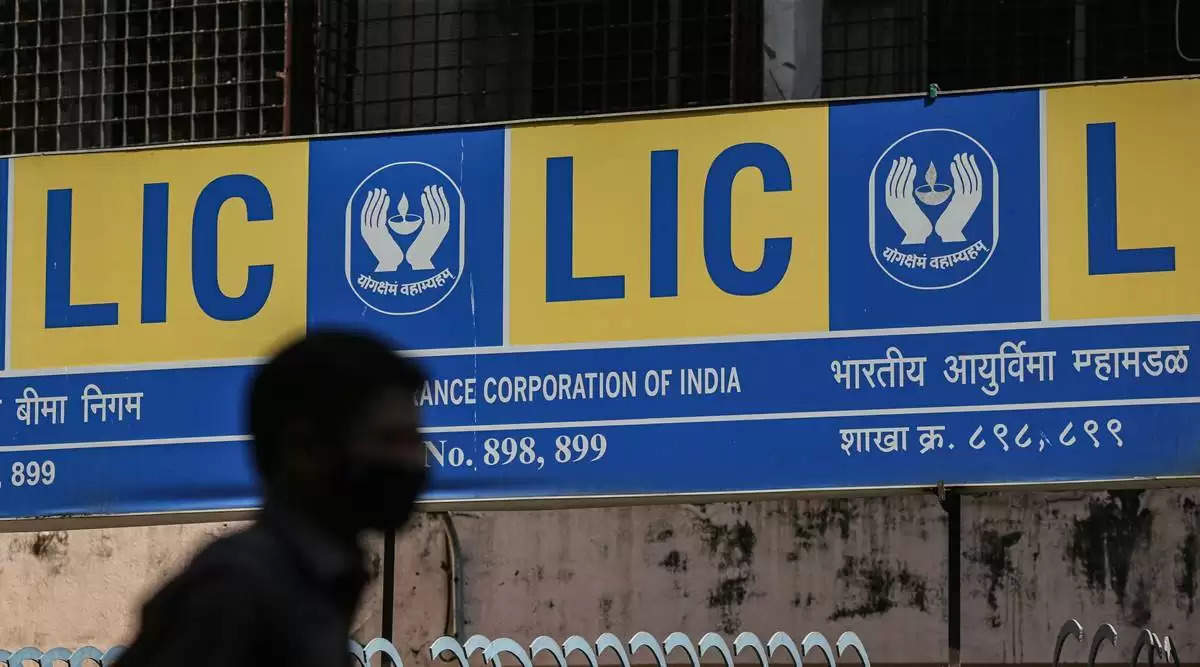Due to market dangers, foreign investors are avoiding the LIC IPO.

Foreign institutional investors have mostly avoided India's largest share sale, finding it too costly in light of currency uncertainties and the global market environment.
With only hours till the conclusion of the subscription period for Life Insurance Corporation of India's $2.7 billion initial public offering, international institutional investors had placed orders for only 8% of the shares set aside for all institutional purchasers.
While sovereign funds from Norway and Singapore participated in the anchor portion of the IPO, the majority of the shares went to local mutual funds.
"Since October, foreign institutional investors have been heavily withdrawing from the secondary market. The Fed rate move, combined with the rupee's recent slide versus the dollar, has increased the danger of currency depreciation, which might erase asset price gains in India, according to Vidya Bala, head of research and co-founder of Chennai-based Primeinvestor.in.
"Therefore, they have no motive to join in an IPO, no matter how huge."
The IPO of LIC, dubbed India's "Aramco moment" in reference to Gulf oil giant Saudi Arabian Oil Co.'s $29.4 billion IPO in 2019 — the world's largest — has ended up resembling the Aramco IPO not only in scale but also in its reliance on domestic investors after foreign buyers deemed the IPO too expensive.
As the war in Ukraine roiled markets, reducing risk appetite, and increasing US interest rates drove international investors off emerging market stocks, India's government lowered the IPO fundraising by around 60%. It also lowered the price range for the country's oldest insurer, which was previously estimated to be valued 6 trillion rupees ($78 billion).
Locals Stream In
While overseas investors have shied away from the sale, retail purchasers have flocked to it in droves. According to stock exchange data, policyholders put bids for more than five times the number of shares earmarked for them, while employees got orders for four times the number of shares available. The offer price is discounted for retail investors and policyholders.
The IPO has received orders for more than double the number of shares on sale, with the tranche for institutional investors being sold out.
The lack of international interest contrasts sharply with some of last year's Indian IPOs. For its 183 billion rupee share sale last year, One97 Communications Ltd., which controls digital payments business Paytm, attracted in the likes of BlackRock Inc., Canada Pension Plan Investment Board, and Teacher Retirement System of Texas, among others. Zomato Ltd., a food delivery company, was also popular with foreign investors.
However, those investors have been left with losses as enthusiasm for India's digital boom has dimmed following a string of failures. Paytm dropped 27% on its first day of trade and is now selling at 74% below its offer price.
Investors are also worried about LIC's capacity to maintain market share as private insurers such as HDFC Life Insurance Co. Ltd. and SBI Life Insurance Co. Ltd. grow. During the epidemic, the private sector has been aggressively expanding, increasing new individual policy premiums while the LIC struggles.
"Foreign institutional investors have never been huge on state-run firms because it's really tough to generate money off them," said Piper Serica Advisors Ltd fund manager Abhay Agarwal. "In the case of LIC, the government was unable to persuade foreign investors that the insurer will prioritise shareholder interests and will not act solely as a government organisation."
.png)